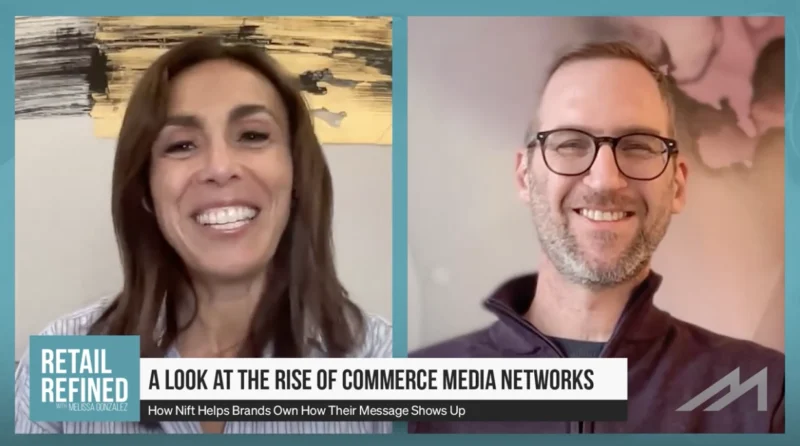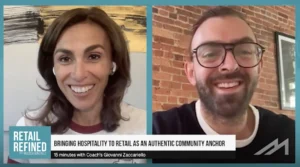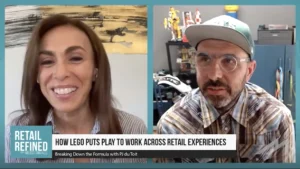More Community Action is Needed to Help Prevent the Growing Amount of Organized Crime Targeting Retailers
This growing phenomenon of retailers pulling out of cities plagued by organized crime offers more than just a lesson in economics; it’s a call to collective action. With the recent departures of major retailers, like Nordstrom, in cities like San Francisco, a major shift is happening in retail. If stores are not leaving, they’re going extra lengths to protect their inventories.
The days when petty thefts were the main source of retailers’ woes has left for organized retail crime syndicates as this trend is what businesses are up against. While there is much focus on the implications for businesses, the ramifications of these “retail deserts” stretch far beyond balance sheets, impacting communities that lose a lot more than jobs. Additionally, policymakers and citizens express displeasure when law enforcement resources are used to protect retail over other and more dire issues.
But the pull-out of retailers should serve as a wake-up call that it’s not an ‘either-or’ scenario. Community action can be a useful tool in combating organized retail crime. Increasing security against retail theft requires an ecosystem of community members, law enforcement, and politicians, collaborating for a more secure and prosperous environment.
Further elaborating on this complex issue is Karen Edwards, the Interim Associate Dean for Academic Programs at the College of Hospitality, Retail, and Sport Management at the University of South Carolina. She has been a senior member of the University’s staff for over 17 years, specializing in the Department of Retailing. She teaches various areas in the field of retail such as digital commerce, asset protection, and law-related matters. Edwards clarified that most retailers don’t want to leave. But year after year deficits are factoring in those decisions. She further added that while police are the go-to problem solvers for retail theft, organized crime theft needs more than law enforcement.
Edwards’ Thoughts on Organized Crime in Retail
“Hi, I’m Karen Edwards, and I am a faculty member in the Department of Retailing at the University of South Carolina. I’m also an Interim Associate Dean at the College of Hospitality, Retail, and Sport Management here in Columbia, South Carolina at the University. And thank you for inviting me to talk about this really important issue of retailers pulling out of cities where the crime has gotten out of hand, where the retailers can’t manage anymore, and it seems like the best solution for them would be to pull out rather than continue. I think we need to remember one thing, that retailers are businesses. And even though they invest heavily in the communities, they care about their employees, they want to serve the communities, the bottom line truly is the bottom line, and no business can stay in business with a net loss. And so where theft has gotten so bad that retailers cannot at least break even, there really is no other response.
“However, I will say this, what can we do about the whole issue? In my opinion, the issue of organized retail crime has become a crisis in our country and really across the globe. In fact, we need to get a handle on organized retail crime. We’re not talking about petty thefts that are causing retailers to have to pull out of certain markets. We’re talking about syndicates of organized criminals working together to steal merchandise, resell it, dispose of it in other means, what have you. The fact is, this is a huge problem in our country and we’ve already seen law enforcement and retailers working together very closely to try and get a handle on this, but we need more. And I know, in fact, from sitting on the board of the Loss Prevention Foundation, which is the largest and premier organization for training professionals in retail asset protection, I have seen the work that is being done to build those bridges, build those collaborations. But law enforcement doing everything they can in connection with these amazing partners in the field of retail asset protection might not be enough, particularly if the police forces are defunded, unfunded, underfunded, or what have you. When it comes to making critical decisions on, am I going to send my resources to save lives, or am I going to send my resources to a retail store that just got hit by ORC? Well, obviously, we’re going to try to save the lives.
So, in those areas where perhaps politicians or local organizations or the powers that be have made decisions to not fund adequately the law enforcement, this has a ripple effect on the community. It’s not the retailer wanting to pull out of an area and create a retail desert in that area. They’ve invested their money, years, talent. They’ve got employees depending on them. Retailers do not want to pull out of areas in which they have invested heavily. That is a last resort when no other option exists. So what I would like to see is the community, political figures, law enforcement, retailers, other related businesses coming together and really working together, rolling up their sleeves, saying, let’s do this together. It can’t be one or two players. It’s got to be everybody. Now, in terms of short-term mediation, yes, locking merchandise has been shown to slow down organized retail crime. But smash and grabs are common in this sector. It’s locking up a little plastic case with merchandise behind it isn’t going to stop someone with a crowbar. We’ve got to address the big issues. So really, we’re not looking at petty thefts causing this problem in my professional opinion. We need to come together as a community, come together as a nation and say, what can we do collectively to solve the problem? Make our cities safe for people, make our shopping environment safe for employees and profitable for those who invest their funds, time, blood, sweat and tears into making these businesses go. I hope this has been useful. If you need additional information, feel free to email me at kedwards@hrsm.sc.edu. Have a wonderful day.“








